You might have heard of the famous Easter Island heads. These massive monoliths are among the world’s most famous sculptures but they also contain an air of mystery.
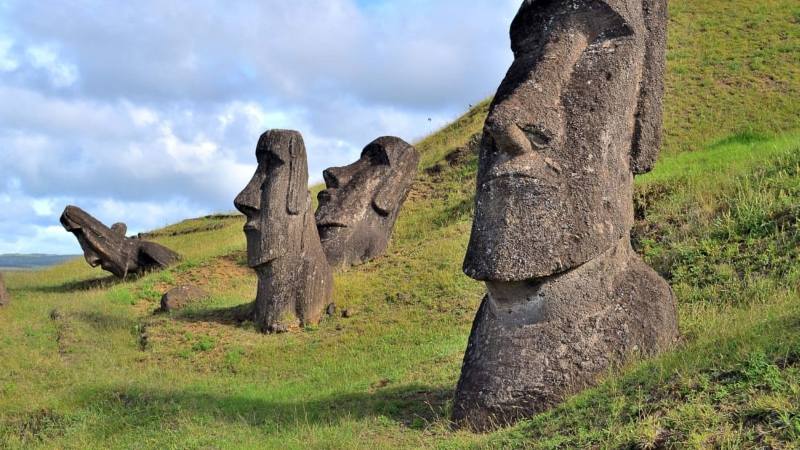
“There exists in the midst of the great ocean, in a region where nobody goes, a mysterious and isolated island. The island is planted with monstrous great statues, the work of I don’t know what race, today degenerate or vanished; its great remains an enigma” wrote the 19th-century French seafarer and artist Pierre Loti.
This island got its famous name from the Dutch explorer Jacob Roggeveen, who first spotted it on Easter Day 1722.
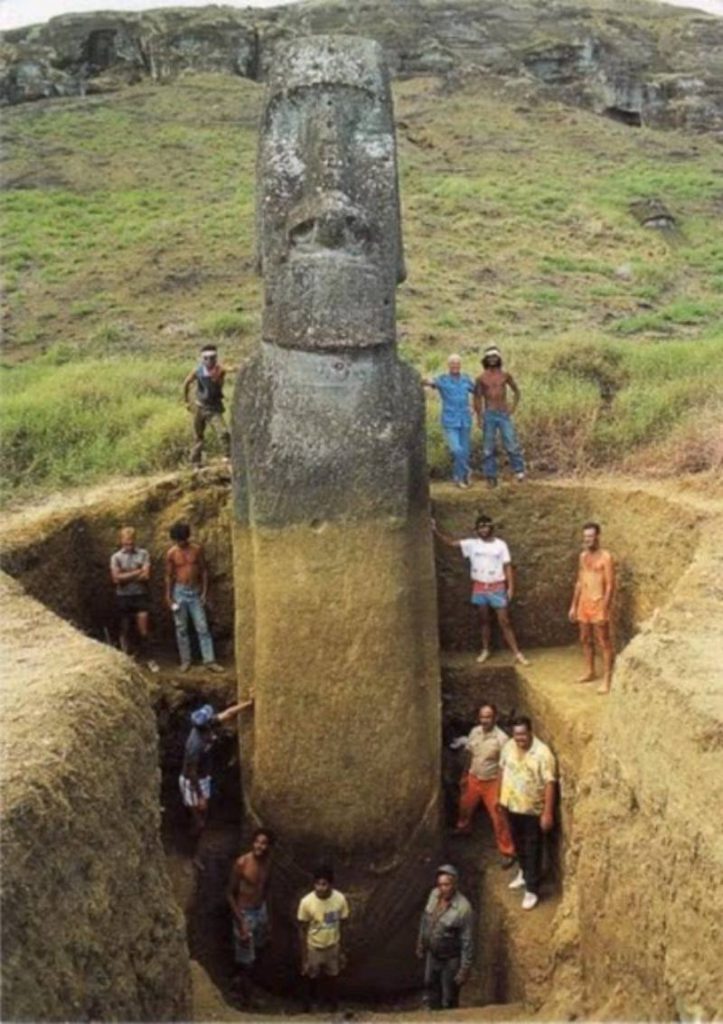
Easter Island, is a remote volcanic island located in Oceania’s Polynesian Triangle. The isle is particularly famous for its collection of nearly 1,000 stone statues.
These stone statues are almost 30 feet tall and weigh as much as 80 tons. But these Easter Island Heads are still considered an enigma. However, researchers have revealed new information about the iconic Easter Island heads.
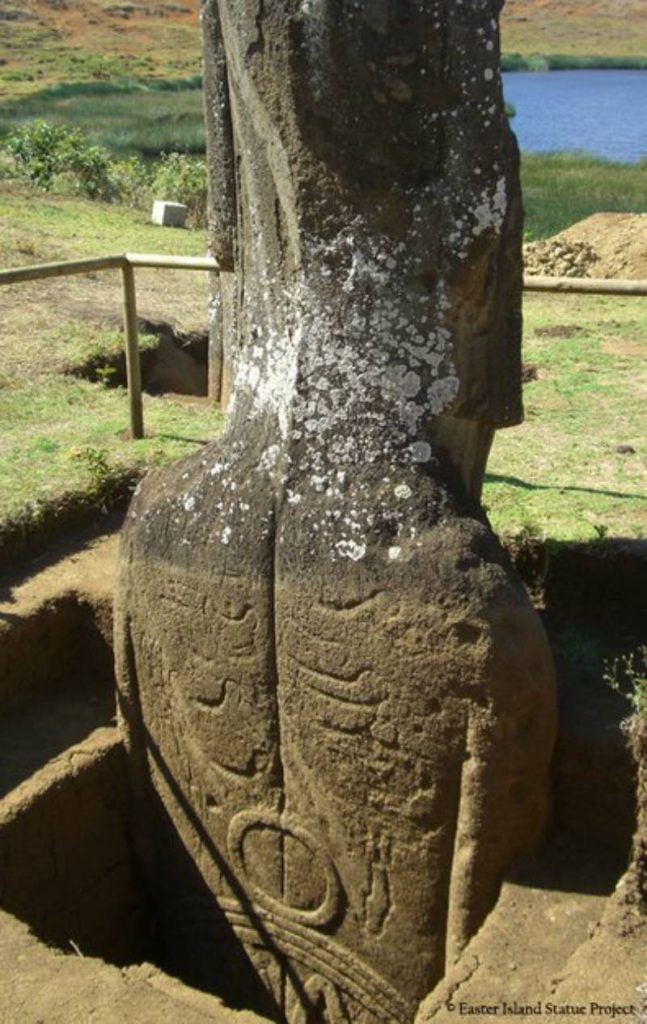
They are actually full-length figures.
Archaeologists have uncovered the bodies associated with the heads and found interesting discoveries that further our knowledge of the Easter Island civilization and how they created the monoliths.
The Easter Island heads are known as Moai by the Rapa Nui people who carved the figures. The Moai monoliths, carved from stone found on the island, are between 1,100 and 1,500 CE.
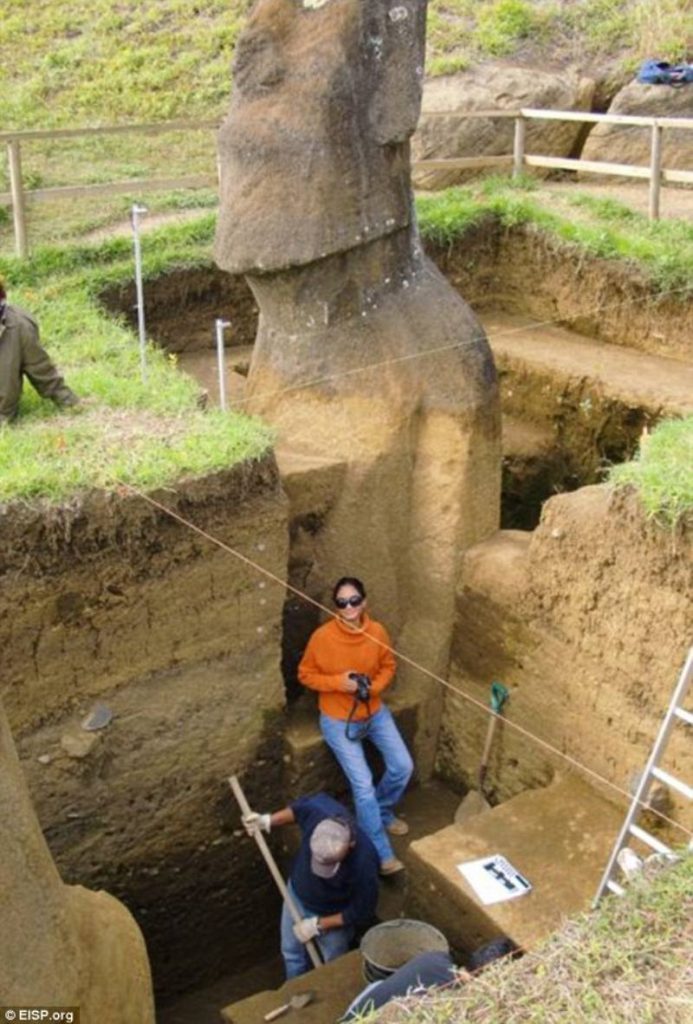
But with time, these statues got buried with sediments, rocks, and shifting soils. And hence created an illusion that each sculpture stops at the neck.
However, a team of archaeologists at UCLA developed the Easter Island Statue Project to better study and preserve the artifacts. Through this work, the team excavated several of the heads to reveal the underlying torso and body.
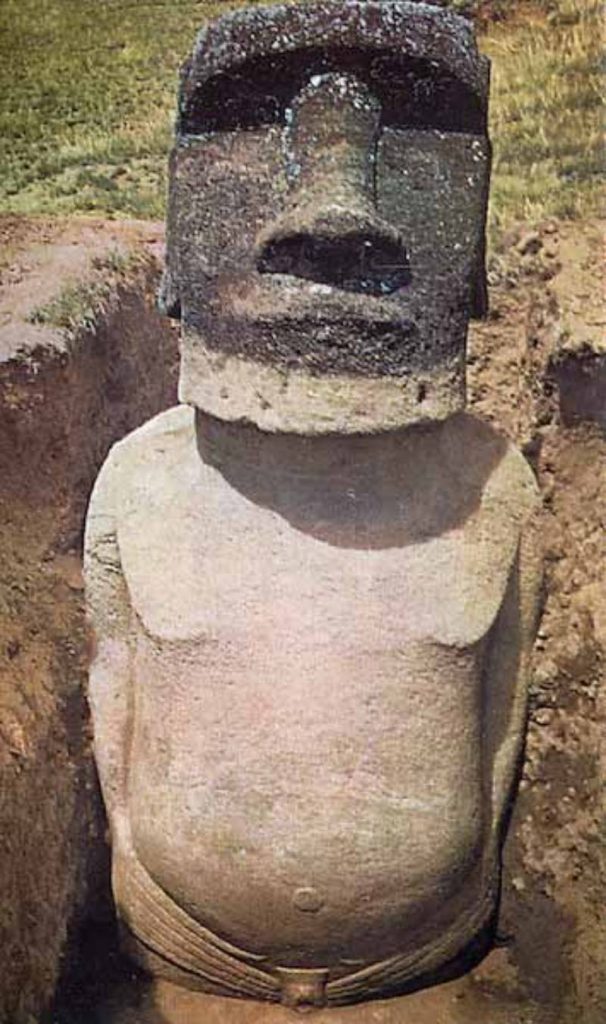
The archaeologists excavated two of the Easter Island heads to reveal their torso and waist.
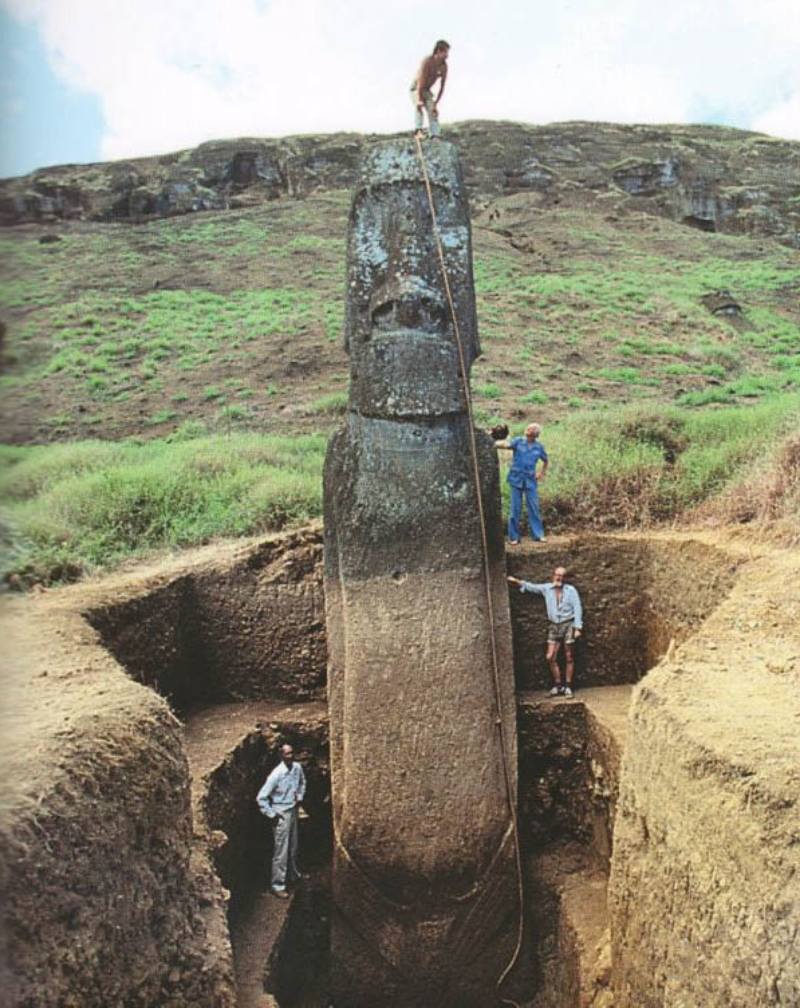
“There are about 150 statues buried up to the shoulders on the slope of a volcano, and these are the most famous, most beautiful, and most photographed of all the Easter Island statues,” Easter Island Statue Project director Jo Anne Van Tilburg told Live Science. “This suggested to people who had not seen photos of (other unearthed statues) that they are heads only.”
What are your thoughts?
Image credits: Easter Island Statue Project
Related Articles:
This Amazing Sunflower Inspired Home Follows The Sun Through The Day
A House That Shivers Adapting To The Forces of Nature
An Architect Designs A Modern House Inside A Giant Rock & It’s Absolutely Mindblowing



